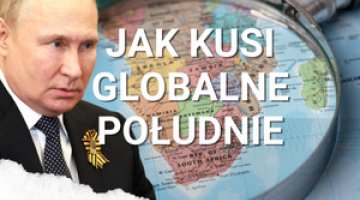Russia and the Taliban’s takeover in Afghanistan
Russia, alongside Pakistan, China, Iran and others, has maintained good relations with the Taliban. It has not closed its embassy in Kabul, which has been under the Taliban’s protection since 16 August. Moscow has been urging the Taliban to engage in “inclusive dialogue” with all political forces and ethnic groups in Afghanistan, with the aim of forming a “representative” government. In fact, this would mean the co-option of some participants in the previous political system into secondary positions in the new regime of the Islamic Emirate of Afghanistan. In Russia’s opinion, the international community should support such dialogue by reactivating the so-called Moscow forum, which (in addition to the Taliban and other Afghan political forces) also includes the five countries of post-Soviet Central Asia, the Russian Federation, China, the United States, Pakistan, Iran and India.
On 19 August, Russia’s Foreign Ministry announced that it would organise several charter flights to evacuate its citizens (several hundred Afghans with Russian citizenship who worked in the structures of the previous government), as well as students studying at Russian universities. At the same time, Moscow has begun military preparations in case the Taliban or other radical Islamic organisations (such as Islamic State or Al-Qaeda) attempt to enter Tajikistan. On 23 August the Collective Security Treaty Organisation and Uzbekistan held an extraordinary summit devoted to Afghanistan (in the form of a videoconference). The summit decided to devise a joint response to the threat of infiltration from Afghanistan by radical Islamist fighters by 16 September.
Commentary
- Moscow is using its long-tended contacts with the Taliban to establish pragmatic relations with them, which should be based on their adherence to its ‘red lines’. The primary aim is to ensure that the militants refrain from any actions which could destabilise the Central Asian states. The Kremlin believes that this type of cooperation with the Taliban is possible; in return, it is offering them support in their efforts to gain international legitimacy. It also supports the ongoing negotiations between the Taliban and a group of politicians from the so-called High Council for National Reconciliation (Abdallah Abdallah, Hamid Karzai and Gulbuddin Hekmatyar), with whom it has been in close contact for several years and considers to be favourably disposed towards Russia.
- In statements by Kremlin representatives and in official media coverage in Russia, a positive image predominates of the Taliban as a popularly supported (at least among the Pashtuns) resistance movement against the US ‘occupation’ and the ‘puppet administration’ of the former president Ashraf Ghani. They are presented as a force that has the potential to bring lasting peace to Afghanistan by creating a political system there based on the ‘traditional’ values shared by the majority of society. Its takeover of Kabul is presented in a positive light as introducing order and stability, restoring the functioning of the infrastructure, and as offering an example of almost exemplary behaviour towards the population of the Afghan capital.
- Moscow’s positive attitude towards the Taliban is based inter alia on the contacts which it has been developing at least since 2014. As late as 2018, the Kremlin tried to organise direct negotiations between the Taliban and the Afghan government, and on several occasions hosted Taliban delegations to this end in Moscow. There have also been reports since at least 2017 that Russia has offered concrete support for the Taliban (financial aid and arms deliveries). The last time their representatives were in Moscow, in July this year, they made public promises regarding two issues of key importance from the point of view of Russia’s interests: not to take any actions that could destabilise the Central Asian states, and to fight radical Islamic groups in Afghanistan itself. It is also of some significance that the Russian Federation has for several years been cultivating good relations with Pakistan (including joint military exercises), whose intelligence service has the ability to influence the Taliban.
- At present, Russia does not intend to explicitly foment the sparks of armed resistance against the Taliban which have emerged in the Panjshir Valley, where Ahmad Masoud, the son of the legendary anti-Soviet guerrilla leader Ahmad Shah Masoud, and the Afghan vice president Amrullah Saleh have raised the banner of the Northern Alliance (a coalition of ethnic minorities who led the armed resistance against the Taliban in 1996–2001). It cannot be ruled out, however, that Moscow will provide Masoud with material support should he continue to resist.
- Russia has made it clear that it is ready to initiate the process of removing the Taliban from the list of terrorist organisations and campaign for international recognition of their government within the United Nations, if they prove through their actions that they will keep the promises made in Moscow in July and stick to Russia’s ‘red lines’. According to foreign minister Sergei Lavrov, the Kremlin’s policy towards the Taliban coincides with Beijing’s line (he consulted his Chinese counterpart on this matter on 16 August).
- At the same time, despite their optimistic declarations about the Taliban’s policy and the prospects of arranging a modus vivendi with them, the Russians – together with their allies (both formal like Tajikistan, and de facto in the case of Uzbekistan) – are conducting fairly large-scale military preparations: they are strengthening their forces based in Tajikistan and carrying out joint exercises. These are warning actions intended to discourage the Taliban from entering Tajikistan or Uzbekistan. This proves that despite maintaining working contacts with the Taliban, in reality Moscow has limited confidence in them.





